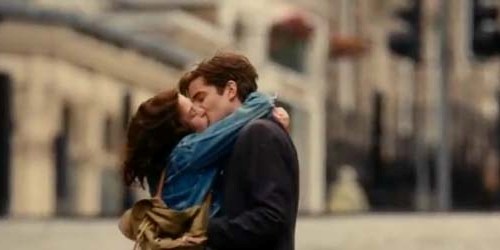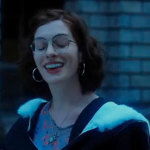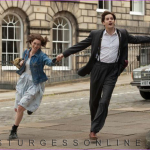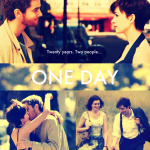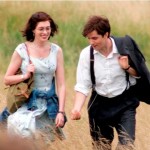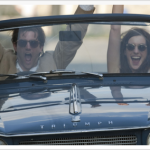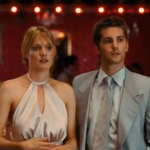It would be a gross simplification to describe One Day as a “romcom”, though it does contain some elements of that genre. Neither is it a saga or potboiler, though you can see some similarities. No, I think it far closer to classic Greek tragedy, since there is a grim inevitability to the storyline that transcends mere genre, though there is a wafer thin fine line indeed between tragic inevitability and cynical formula – and some critics felt less charitable, stating that a perceptive study of wasted youth erred decidedly in favour of the romcom. If so, it is romcon with gravitas and depth.
One Day is the story of a relationship between two people played out through the same day each year, 15 July, for 23 consecutive years, recording as it does the moments of happiness, the tragedy, the loves gained and lost, and the wistful remembrance when the two people are torn apart. And when it does, the questions arising: what if they had been a couple from the start, how would things have turned out differently?
We see them age gracefully and with no loss of beauty (for it is the same actors with different clothes, hairstyles and make-up playing the same roles), though wisdom only grows once they hit their 40s. He gains success but becomes obnoxious, then loses success and realises it was all a hollow sham. She struggles to find her niche as a writer and reinvents herself in subtly different ways over the same period.
That a woman, Lone Scherfig, directs the adaptation of a much-loved novel (which I have yet to read) is not surprising. Not that male directors can’t handle emotional sensitivity, but maybe the perspective and insight is different to how it might have appeared in other hands. But of course it is not simply her gender that is relevant here, any more than her background with the Dogme 95 movement. Her Wikipedia states this:
Through both experimenting with creative constraints and her astute attention to detail, she has come to be recognized as a blossoming talent
On that promise I look forward to her future movies, but this one is maybe a qualified success. Maybe some of the experiments work better than others. Some novel enthusiasts have criticised the movie, and suggested the characters are less sympathetic than they should be, though maybe that is simply the effect of animating them.
I don’t believe they are badly intentioned, though both have their black moments along the journey. In a movie they have to gain light and shade or they would simply appear as cardboard cutouts. My issue with the characters in One Day is that while the central coupling is played beautifully by Jim Sturgess (Tennant light?) and the delectable Anne Hathaway (who must be contractually obliged to provide a beaming white smile every 4 minutes), some of the cameos and occasional extras are painted as cliches.
For example, Rafe Spall does a very similar irritating chummy act, a sort of stand-up comic younger brother to Steve Coogan‘s Alan Partridge, as seen previously in I Give It A Year. At no point does his character Ian progress or develop in any way, so frankly you could believe Hathaway’s Emma Morley would go for a date but not that she would end up living in a one-way relationship with this moron, but I suppose it does happen in real life. For a beautiful, intelligent and personable young woman though, I think she would have better taste. But though she is in denial, there is really only one man for her.
Sturgess’s Dexter (sorry, can’t see that name without thinking of the other Dexter) has a grumpy father played by hugely talented character actor Ken Stott, but even here the grumpiness only becomes slightly less muted over a long period. That Romola Garai‘s Sylvie would end up having an affair and being divorced from Dexter was utterly predictable. And so it goes on… the people in their lives fade into insignificance because theirs is the only relationship that truly matters.
So my case is this: maybe this is all a sign that the rules of classic tragedy are being applied and that the tragic end to the relationship was predetermined. However, that is not the end of the movie, since it then replays the very early days and how they did, after a false start, sleep together and how, in spite of loving one another from very near the start, choose to apply a different set of rules and remain good friends… until too late. Well, I’ll give it the benefit of the doubt at any rate.
Finally a tale of two friends: since a friend has her birthday on that day, it is very definitely her movie and demonstrative that movies can have parallels in real life, since she certainly feels a strong bond with Emma. For the friend, who gave me a spoiler of the outcome some 30 mins before I reached that point of the film, shame on you – though I think I would have guessed anyway. It’s the tragedy. Or the formula. Or both.

